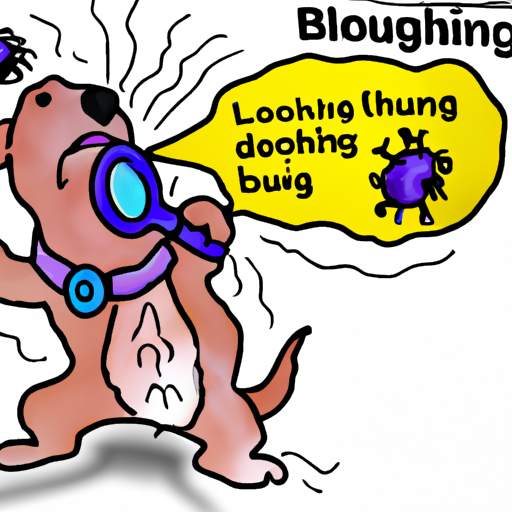Bronchitis in dogs is a critical health concern that you, as a responsible pet owner, should not overlook. Understanding the causes, signs, and treatment options is key to ensuring your dog’s wellbeing.
1. Understanding Bronchitis in Dogs
Bronchitis is an inflammatory condition affecting a dog’s bronchi, the airways that lead from the trachea (windpipe) to the lungs. This inflammation can cause your pet to cough persistently and have difficulty breathing.
Chronic bronchitis is a long-term condition that can drastically affect your dog’s quality of life. The cause of chronic bronchitis is usually unknown, but several factors can contribute to its development.
2. Causes of Bronchitis
Bronchitis can be caused by various factors:
-
Infections: Bacterial, viral, or fungal infections can lead to bronchitis. These infections can damage the lining of your dog’s bronchi, leading to inflammation.
-
Allergies: Dogs, like humans, can suffer from allergies. Exposure to allergens like dust, pollen, or mold can trigger an allergic reaction leading to bronchitis.
-
Smoking: Second-hand smoke is not only harmful to humans but also to dogs. Prolonged exposure to cigarette smoke can cause bronchitis in your pet.
-
Air Pollution: Poor air quality, especially in urban areas, can lead to bronchitis in dogs.
-
Heartworm Disease: This parasitic infection can cause severe lung disease, leading to bronchitis.
3. Symptoms of Bronchitis in Dogs
Recognizing the signs of bronchitis can help you get the necessary medical attention for your dog in time. Some symptoms include:
- Persistent cough
- Difficulty breathing or panting
- Loss of appetite
- Lethargy
- Fever
- Weight loss
4. Treatment Options for Bronchitis in Dogs
The treatment for bronchitis in dogs depends on the cause and severity of the condition. Here are some of the commonly used treatments:
-
Medications: Your vet may prescribe antibiotics for bacterial infections, cough suppressants, bronchodilators to open up the airways, or corticosteroids to reduce inflammation.
-
Diet and Exercise: A balanced diet and regular, gentle exercise can help manage your dog’s weight and improve their overall health.
-
Environmental Changes: Avoid exposing your dog to second-hand smoke, allergens, and poor air quality.
-
Surgery: In severe cases, surgery may be required to remove obstructions or to treat underlying conditions.
5. Preventing Bronchitis in Dogs
Preventing bronchitis in dogs involves maintaining a healthy lifestyle and minimizing exposure to risk factors:
- Regular vet check-ups
- Adequate vaccination
- Regular exercise and a balanced diet
- Avoiding allergens and second-hand smoke
Frequently Asked Questions
1. Q: Can bronchitis in dogs be cured?
A: In many cases, bronchitis can be managed with medication and lifestyle changes. However, chronic bronchitis is a long-term condition that may require ongoing treatment.
2. Q: How is bronchitis diagnosed in dogs?
A: Your vet may use a combination of physical examination, x-rays, blood tests, and bronchoscopy to diagnose bronchitis.
3. Q: Is bronchitis contagious to other dogs or humans?
A: If the bronchitis is caused by an infectious agent, it could potentially be contagious. However, most cases of bronchitis are not contagious.
4. Q: Can bronchitis in dogs be prevented?
A: While you can’t prevent all cases of bronchitis, you can reduce your dog’s risk by keeping them healthy, avoiding allergens and second-hand smoke, and ensuring they get regular vet check-ups.
Remember, your dog’s health is in your hands. You are their caregiver and their best advocate. Stay informed, stay alert, and always consult your vet if you notice any changes in your dog’s health.



